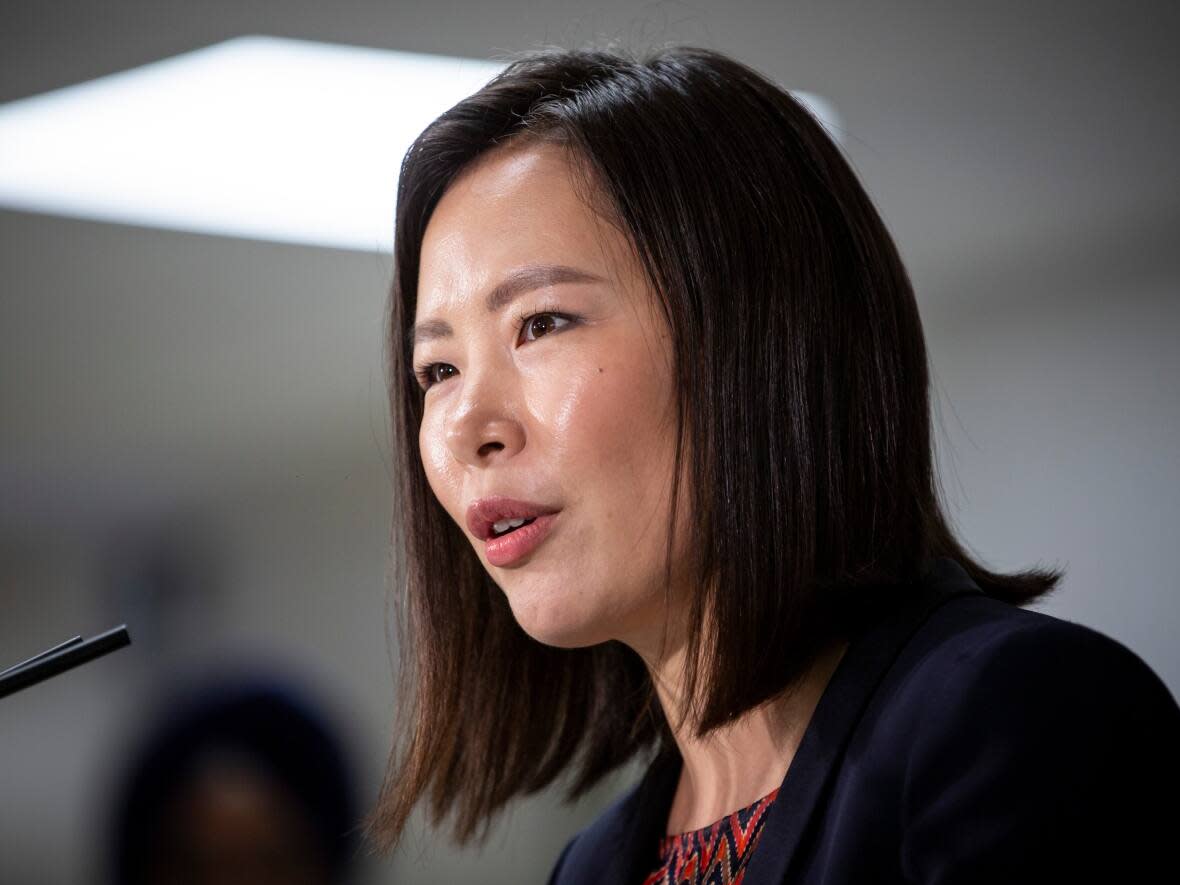Fraser Health CEO defends quality of hospital care as doctors warn of crisis conditions

The CEO of Fraser Health is defending the quality of hospital care in British Columbia's largest health authority after a string of scathing letters from doctors sounded the alarm about understaffing, underfunding and a lack of public transparency.
On Thursday, CEO Victoria Lee told CBC's All Points West host Jason D'Souza that while she is concerned about what she is hearing from physicians, patient care remains a priority and the health authority is talking with the province about addressing immediate challenges.
"Right now, in terms of day-to-day operations, we are able to access surge payments and other resources to ensure that we're meeting the demands," Lee said.
"We're working together with the province to ensure that we are getting adequate resources for the population that we serve."
B.C. Health Minister Adrian Dix met with Fraser Health doctors Wednesday.
Speaking at a separate news conference later in the day, Dix said the meeting proved the province is committed to working with physicians to improve the pressure on acute care.
"What I think doctors said to me, specifically, is they want to be involved, and I want them to be involved because at a detailed level, at a patient level, they have the insights required to make the right decisions," he said, adding that he has "full confidence" in Lee after meeting with her on Wednesday.
Lee did not specify what solutions or specific resource needs she discussed with Dix.
Dix's meeting with Lee came after the release of letters from doctors at Surrey Memorial, Royal Columbian and Eagle Ridge hospitals that tell a similar story — staffing problems have pushed already strained emergency rooms over the edge, leaving doctors exhausted and patients receiving sub-par care in cramped hallways.
Dr. Urbain Ip, leading emergency room physician at Surrey Memorial, spoke out publicly last week about the situation there.
Ip said the understaffing and overcrowding problems in the emergency room have him and his colleagues regularly going home "worried sick" about their patients.
"Right now, if my loved one got sick, I'm not sure if I would send [them] to my hospital ... and that's a terrible thing to feel," said Ip, who's been an emergency doctor for more than 30 years.
WATCH | Senior physician at Surrey hospital speaks about conditions that are leaving staff 'worried sick':
When asked about Ip's comment, Lee said health-care providers and the health authority are "absolutely dedicated and committed to providing the best care possible" and people should feel confident going to emergency rooms in the region.
"Whenever I have an emergency, I would go to the nearest emergency, including any of the Fraser Health hospitals and any of the hospitals in B.C.," said Lee.
A blistering letter from Surrey Memorial medical staff sent May 19 called on health-care leaders to either fill vacant positions in the hospital's emergency room or shut down the department to new patients.
The letter said an ongoing shortage of hospitalists, or house doctors, has made it "increasingly difficult, if not impossible," for doctors to give patients the level of care they need.
"We implore you to take immediate action to bolster the availability of hospitalists physicians to the ED at SMH, and if you cannot do this, the only responsible recourse is to place the Surrey Memorial Hospital ER on diversion."
Hospitals are put on diversion when they are too overwhelmed to safely accommodate new patients. On diversion, emergency departments do not accept incoming patients until it recovers to a more manageable patient load.
Lee says that is only done under extreme circumstances and would put pressure on strained emergency services elsewhere.
She said any discussions and decisions about diversion would need to include representatives from B.C. Emergency Health Services and other health authorities.


